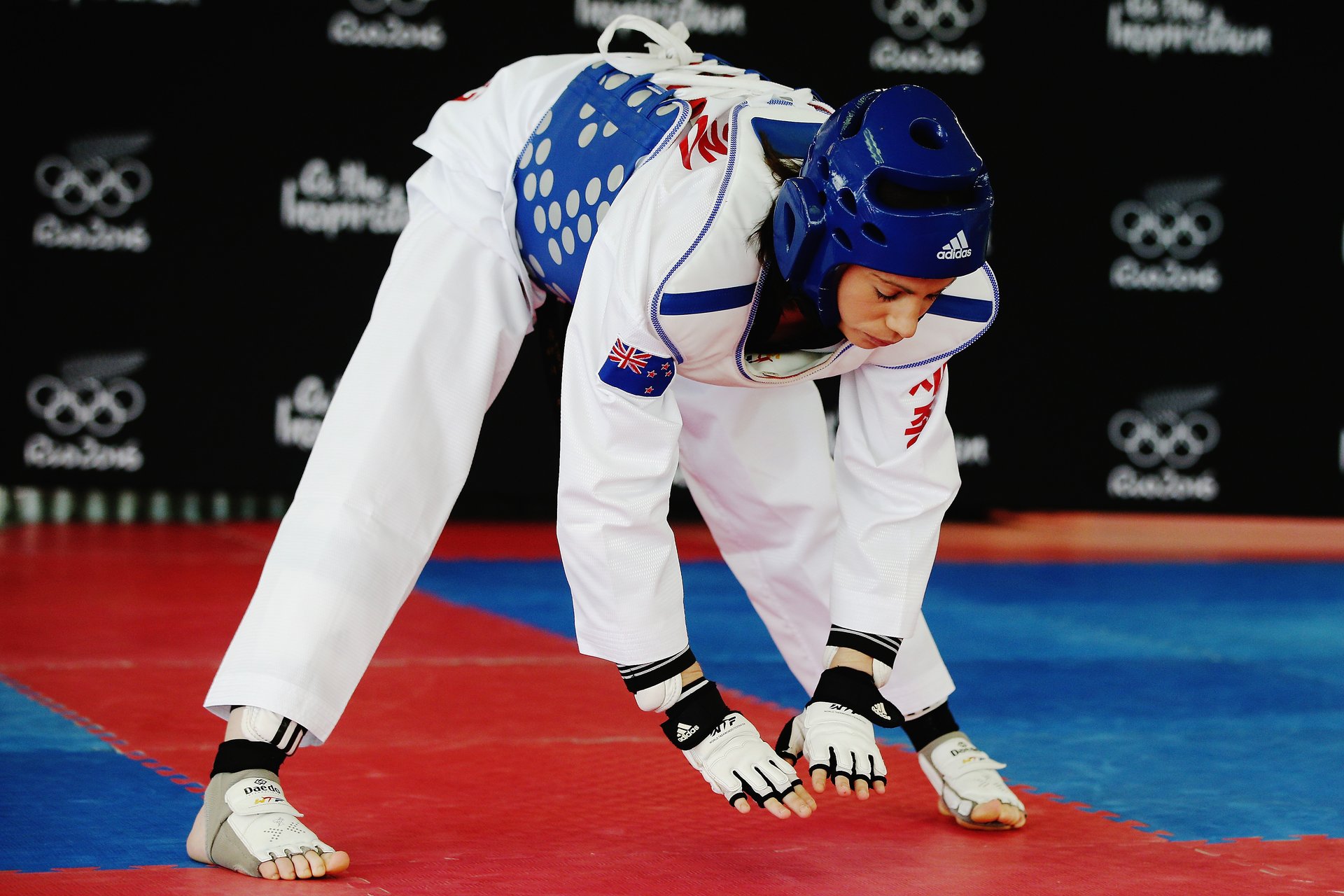
Taekwondo exponent Andrea Kilday is proud knowing there is a generation of young kids who look up to her.
At the Sejong Taekwondo club on Auckland’s North Shore where Kilday trains six days a week, young students watch her in awe and try to replicate her technique – explosive and fast.
“It’s a good feeling to see there might be little kids who look up to me and are like ‘I want to fight like her, or train with her’,” the 34-year-old says.
“I’d love to be able to encourage more people to do taekwondo… it’s quite a small sport in New Zealand.”
[embed width="480" height="270" class="leftAlone" thumbnail="https://i.ytimg.com/vi/opKqJhuuvPk/hqdefault.jpg?r"]http://www.youtube.com/watch?v=opKqJhuuvPk[/embed]
And then there are Kilday’s own two children, Phoenix and Lucian, who also do the Korean martial art, and are no doubt very proud of their Olympian mum.
Raising children and holding down a full-time job while training for an Olympic Games is no simple feat. “Keeping the balance is not easy and it’s something I’ve had to work at over time. Having a schedule and routine is really important,” she says. She’s been lucky, she admits, to have a “very supportive boss” who has allowed her time off to compete.
That investment has paid off handsomely. Last year, Kilday became the first New Zealander to win a Pacific Games title, then returned to Papua New Guinea this year to win the Oceania title and earn Olympic selection in the women’s under 49kg division.
Since starting taekwondo as a nine-year-old in Christchurch – when her mum wanted her to learn self-defence - Kilday has discovered that accuracy is the most important skill in her sport.
“Timing is everything. You need to be able to connect with your opponent’s body at exactly the right time,” she says.
She’s always been quick on her feet, but her accuracy has been built up through skill training and gym work. She does deadlifts, squats, lunges and abdominal strength work, developing her legs and her core.
Power is no longer as crucial in taekwondo. The sport has changed with new technology - athletes are kitted out sensors which determine how many points are scored on each hit. What is vital now is good technique, and Kilday has developed her own technique so that when she hits her opponent, she scores the most points possible.
Kilday has also focused on increasing her mental accuracy. “It’s really important to have confidence, believe in yourself, and focus on what you’re good at,” she says, working to shut out negativity and focus on what she does well.
Competing for New Zealand is “an amazing opportunity” – especially at an Olympic Games. The chance to be part of the New Zealand team in Rio is particularly sweet for Kilday, who missed selection for the 2012 London Games, and has worked tirelessly towards her Olympic dream.
“I’m really excited to go to Rio and show people what I can do,” she says.